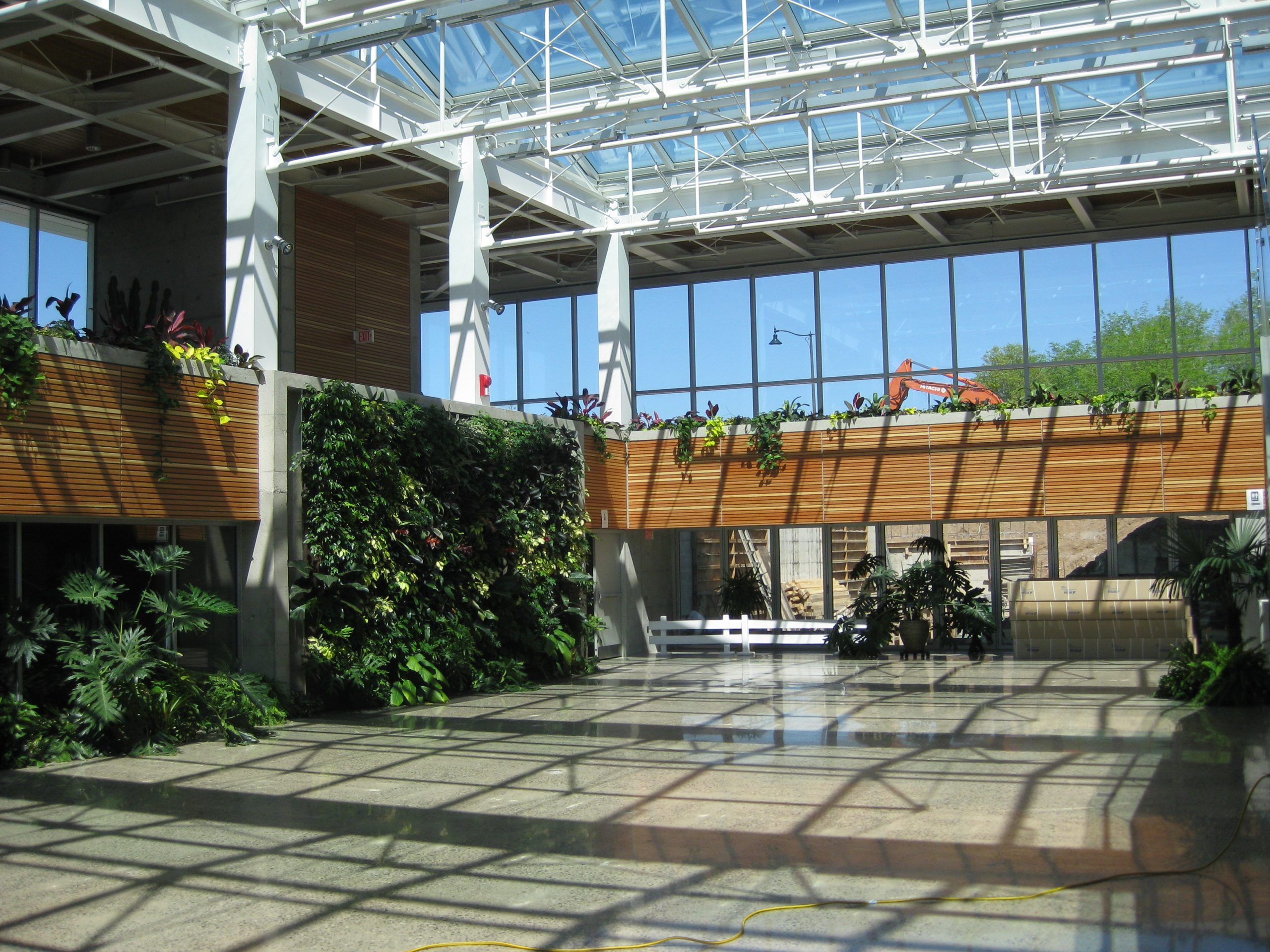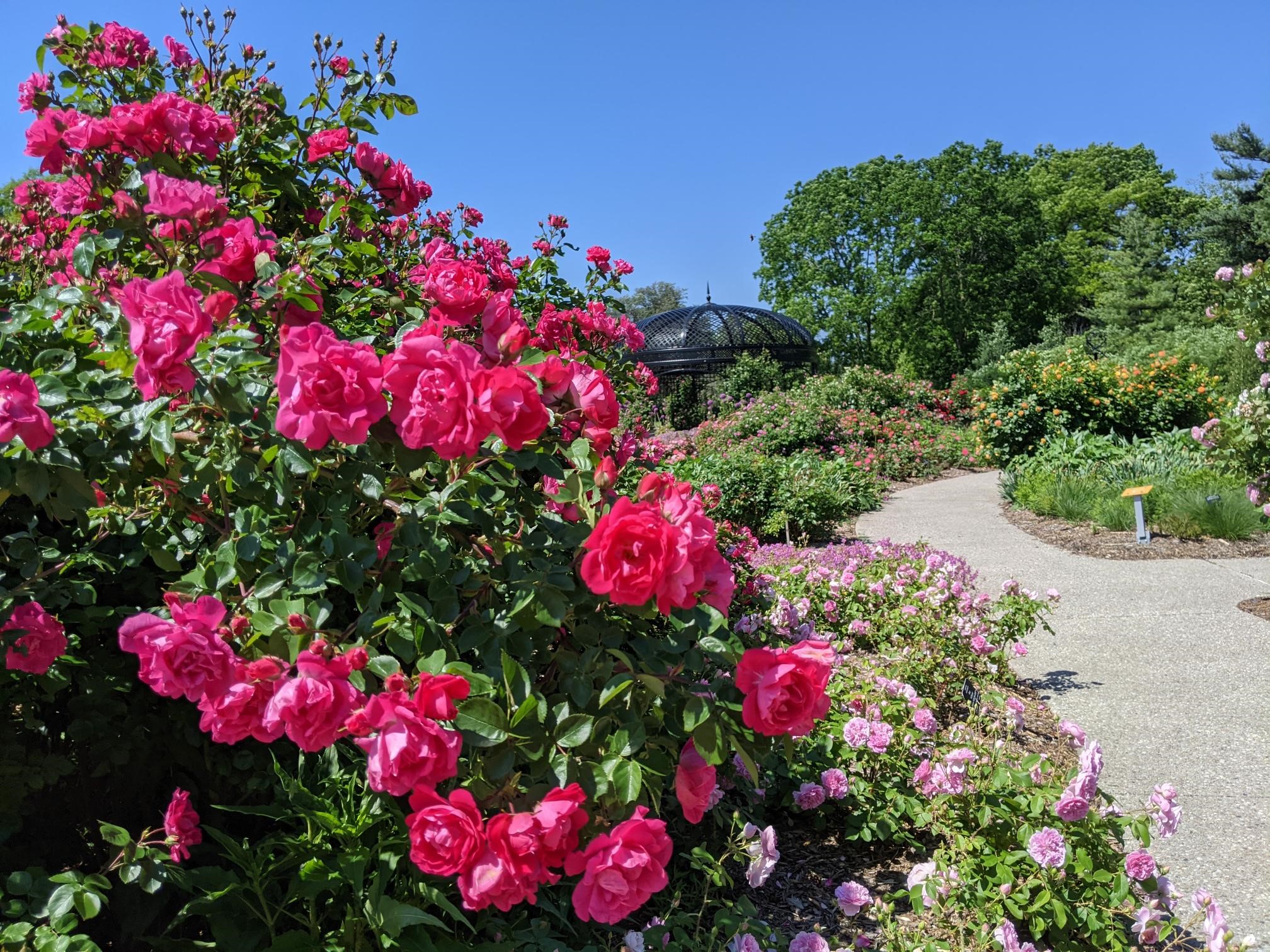| Membership | Price (+HST) |
|---|---|
| Single | $85/year |
| Single Plus | $120/year |
| Family | $130/year |
| Family Plus | $175/year |
| Contributing | $300/year |
| Supporting | $600/year |
| Sustaining | $1,000/year |
| Benefactor's Circle | $2,500/year |
| Director's Circle | $5,000/year |
| President's Circle | $10,000/year |
Celebrating the Urban Wild: RBG Makes Every Day Earth Day
By Dr. David Galbraith, Director of Science, Royal Botanical Gardens
Earth Day challenges us to consider our actions locally and understand how they relate to global issues. Equally important is understanding the consequences of global trends and how we can adapt to what is already happening. Climate change, for example, is not something in the far future. We’re seeing its effects now.
Some key global challenges that RBG has been working on for some time include sustainability in the use of energy and materials, minimizing the use of pesticides and fertilizers in managing the landscape, and responding to invasive species that affect our lands.
Using energy sustainably is all about efficiency, and that often saves money as well as contributes to the environment. The Camilla and Peter Dalglish Atrium at RBG Centre, for example, was built in 2008 to Gold LEED standards. The features and design of the Atrium, which is 80% glass and functions as a greenhouse, greatly reduce the electricity needed to operate it. Air conditioning is provided by plants in living walls, and rainwater is collected and used as “grey water” for everything from irrigating plants to flushing toilets.

Operating a major public garden can present real challenges. Historically some plant collections, like roses, required a lot of fertilizer and pesticides to survive. RBG has long practiced Integrated Pest Management (IPM) in its gardens, using natural systems to reduce pest damage. This was brought to a whole new level in 2018 with the replacement of the Centennial Rose Garden in Hendrie Park with the Sustainable Rose Garden. This reboot pairs disease resistant, cold hardy roses with pollinator-friendly companion plants. A buried trickle irrigation grid and deep mulching encourage roots to chase water naturally, cutting both irrigation and chemical inputs. This garden very quickly moved from replanting to spectacular display. It’s one of my favourites.

Among the first ecological management goals at RBG was to reduce the effects of an invasive species, Common Carp, in Cootes Paradise Marsh. Starting in the 1940s the damage that carp was doing to wetland plants was recognized and efforts were made to reduce their populations through netting. By the 1990s new ideas were brought forward and the Cootes Paradise Fishway – a world-leading technological innovation in the fight against invasive species – went online. Keeping carp out of the wetlands is having a positive effect, supported by targeted replanting of native wetland species in suitable areas. Our Natural Lands department, led by Tÿs Theijsmeijer, continue to remove other invasive species too. RBG is also a member of a North American network of public gardens that use their collections and other assets to be on the lookoutfor newly arriving invasive animals and plants.
RBG Fishway, Cootes Paradise
Earth Day isn’t just about what organizations can do to secure a sustainable future for humanity on Planet Earth – it’s a reminder that each of us can make a positive difference too. Consider planting resilient native plants in your home garden or learn about minimizing the use of cosmetic pesticides to keep your place looking neat. Another great contribution you can make is to volunteer at a place like RBG, where there are plenty of opportunities to help with projects like removing weeds or invasive species.
Fifty-five years after the first Earth Day march, things like climate change seem more pressing than ever. Keeping a positive outlook is essential, despite how difficult things might seem. I keep coming back to stories of conservation optimism, because there are many good new stories to share. They don’t lessen the urgency of global – and local – environmental issues, but they help keep the issues in perspective.
More from the RBG Blog
Check out RBG’s blog for announcements, articles, and more from Canada’s largest botanical garden.
Want to be sure you hear first? Sign up for our weekly e-newsletter to hear about upcoming events, weekend activities, articles, and more!
















